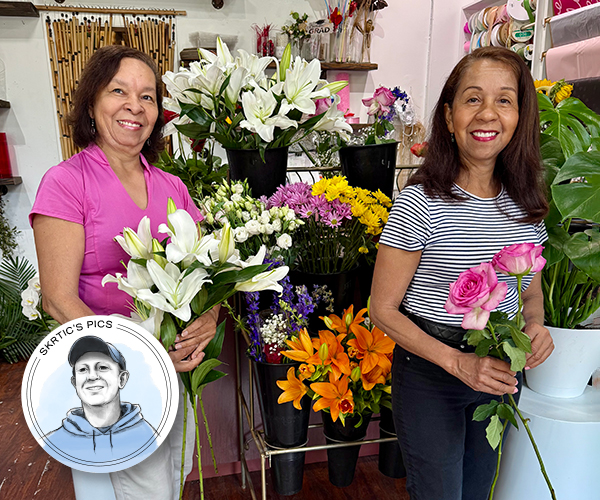Street Fight
Barbara Anderson could have given up on her troubled neighborhood, which had been battered by foreclosures and crime. Instead she headed up the battle to save it.
It’s a reminder of how difficult it was for Anderson and her family to move to Slavic Village from Hough in 1982. For her, it recalls the insults and threats she and her children faced as the first African-American family in her neighborhood. It’s also where her garage stood before it was burned down — twice.
Anderson’s husband, Robert, built the basketball court in 1985 to serve as a safe place where his children, nieces and nephews and, eventually, grandchildren could play. Robert died two years ago, but the basketball court is still there.
Today, Barbara Anderson, 62, beams while looking at the court. She smiles and laughs. Her cherry red blazer and matching skirt means she’s just come home from church. A dozen neighborhood children immersed in a pick-up game astutely stop cursing upon her arrival. Respect is the price of admission.
“I can only hope it keeps them out of trouble,” says Anderson, a consumer protection specialist for the city of Cleveland since 2007. It’s a job that fits her. For the past six years she’s spent her free time helping her neighborhood recover from years of predatory lending practices.
By the time that fight started, Anderson had evaded foreclosure on her own home three times with the help of the East Side Organizing Project, now called Empowering and Strengthening Ohio’s People. The small nonprofit had resolved $30,000 in fees Anderson owed to her lender, Fairbanks Capital, for a house that cost $30,000 in 1982. She repaid the nonprofit for helping her by becoming its most vocal supporter and later its treasurer.
“She was hellbent to go after them,” recalls Mark Seifert, executive director of the East Side Organizing Project. He says Anderson’s testimony to the Federal Trade Commission was instrumental in Fairbanks Capital returning more than $40 million to consumers in 2003. Still, that victory didn’t cure what was happening on Anderson’s street. Nearly half of the 20 homes had been foreclosed upon. Drug dealers and prostitutes were setting up shop. “There was a sense of hopelessness,” she recalls.
To combat the blight and apathy, Anderson organized the Bring Back the 70s Street Club in 2004. Comprised of residents living from East 70th to East 78th streets, north of Union Avenue, the group’s first order of business was a summer-long cleanup on East 76th Street, throwing out old tires and garbage left by illegal dumping. But the group cleaned up the street in other ways as well.
Vanessa Jones, a victim of drug dealer harassment, inspired an anti-drug vigil on a street corner known as an active dealer hangout. One year and a $5,000 grant later, two surveillance cameras were installed to watch the corner 24 hours a day.
Anderson also enlisted kids to mow lawns and prune bushes of vacant properties. Residents laugh when asked if the neighborhood has improved, because the change is so obvious. Anderson puts it plainly: “The threat of imminent danger isn’t always looming over our heads.”
The number of foreclosures has dropped as well. Today there are only four and a few vacant lots. “I see a neighborhood still at war, but I also see a neighborhood on the comeback,” Anderson says. “And I feel good about that.”
Her story has garnered mentions by People magazine and PBS. Anderson even shared the stage with then-presidential candidate Barack Obama in Des Moines, Iowa, during a question-and-answer forum a month before the 2008 Iowa caucus. She attended his inauguration 13 months later.
Anderson downplays all the attention, shifting the spotlight to her new causes, like converting the abandoned warehouse that sits next to her backyard basketball court into a community center. JP Morgan Chase recently gave the property to a nonprofit created by the street club via the Cleveland Land Bank, and Cuyahoga County treasurer Jim Rokakis has forgiven the $37,000 in taxes owed on it. Being part of her neighborhood is all Anderson says she’s wanted all along.
“To come home and feel great love from everybody, that’s enough for me right there.”
people
12:00 AM EST
December 16, 2009



